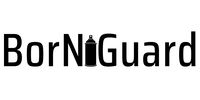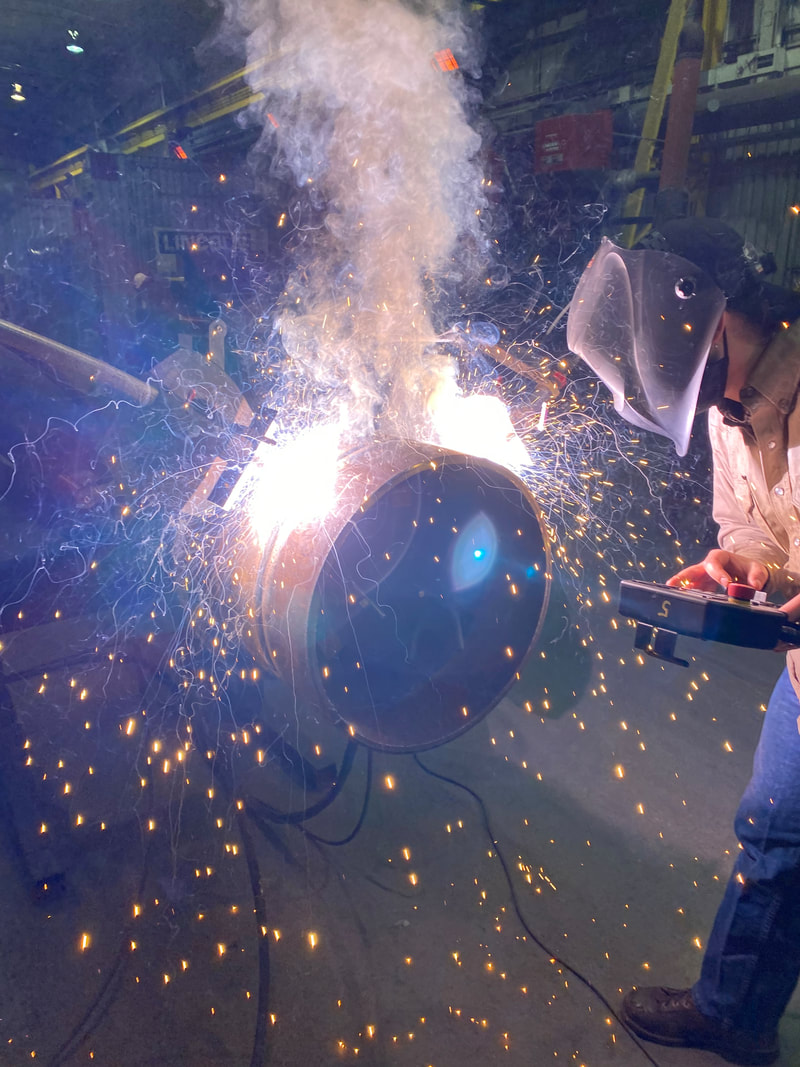|
See the mention of Allchem LLC in The Fabricator April 2022 edition p22 'Supplier News'.
3 Comments
School is out and wife (teacher) is free to travel. So, we've loaded up the RV and will take BorNiGuard promotion to NOLA. Our kids will hold down the fort and fulfill orders in usual fast and accurate fashion.
Some large multi-national providers of ceramic anti-spatter have struggled with supply chain over the last few months. BorNiGuard is made in USA with ample stock and quick turnaround on new builds, and we almost always ship on the same day that your order is received.
Choose BorNiGuard ceramic anti-spatter for fast and reliable service. Orbital welding is a precision welding technique that is widely used in industries such as aerospace, pharmaceuticals, and food processing. It involves welding components together using an orbital weld head that rotates around the workpiece while simultaneously feeding a welding wire. One challenge that welders face with orbital welding is the build-up of spatter, which can lead to increased maintenance costs and reduced productivity. However, using a ceramic anti-spatter coating can help improve the quality of orbital welding.
Ceramic anti-spatter coatings are specialized coatings that are designed to prevent spatter buildup on welding equipment and components. They are typically made from a blend of ceramic particles and binders that are applied to the surface of the welding head using a spray gun or brush. BorNiGuard is a high-grade ceramic coating made from hexavalent boron nitride. Once applied, the coating hardens to form a tough, abrasion-resistant layer that can withstand the high temperatures and harsh conditions of welding. One of the main benefits of using a ceramic anti-spatter coating for orbital welding is its ability to reduce downtime and maintenance costs. Spatter buildup on the welding head can lead to clogs and other problems that can interrupt the welding process and require frequent cleaning and maintenance. By using a ceramic coating, welders can significantly reduce the amount of spatter buildup, which can help to keep the welding process running smoothly and reduce the need for frequent cleaning and maintenance. Welding generates high temperatures, spatter, and debris, all of which can quickly wear down metal tools and components. Ceramic coatings provide a layer of protection that can withstand these conditions, allowing tools to last longer and operate more efficiently. Ceramic coatings can be easily applied during welding, cutting, and stamping operations.
Ceramic coatings, like BorNiGuard, can be applied well in advance and shorten downtimes. For a robotic cell, for example, coated consumables can be stored in the cell for ready replacement. BorNiGuard-coated parts can be stored in the welding/cutting area for weeks or months and not lose their ability to repel spatter for hours of uninterrupted production. This is fundamentally different from traditional oil-based sprays and dips that need to be applied often and, therefore, in the cell, causing unwanted oily surfaces and hydrocarbons. BorNiGuard applies easily and dries quickly. It is recommended to apply BorNiGuard away from flames or sparks. For efficiency of time and material, you can coat several tips, nozzle, and diffusers at once in a safe area. For example, apply BorNiGuard to a week's allotment of consumables and transfer them to the welding area for ready replacement. You can coat the parts in the next county, bring the coated parts to the production area, and enjoy the same benefits of reduced consumables and downtime. Traditional anti-spatter coatings and gels are designed to be applied often, about every few welding cycles, to resist spatter. Recoating increases downtime and can foul your weld pool. Using a dry anti-spatter coating, such as BorNiGuard, can help reduce downtime.
BorNiGuard only needs to be applied once at the beginning of your weld. Acting as a dry anti-spatter coating, it offers several advantages over traditional coatings, including:
Allchem remains open with same-day dispatch of BorNiGuard ceramic anti-spatter.
We wish you good health and safety. When welding aluminum, one of the main problems or defects you’ll come across is porosity. Porosity occurs when gas becomes trapped in the weld pool. Porosity can occur when welding any metals, including aluminum.
Porosity in aluminum is caused by hydrogen, which is the only gas soluble in aluminum. If the cooling rate is too high when welding aluminum, the hydrogen becomes trapped in the metal in the form of porosity. Prevent porosity with several measures, including ceramic anti-spatter spray. Use proper tools and cleaning methods made for aluminum, such as stainless steel wire brushes. Using an anti-spatter spray can also help prevent porosity. Because hydrogen is present in water and oils, you’ll want to select an anti-spatter that does not contain any water or oils. Ceramic anti-spatter like BorNiGuard works well to prevent porosity. Robert Lahnsteiner, of MIG WELD GmbH International, states that “ceramic spray is safe if applied correctly.” BorNiGuard is an aerosolized high-grade ceramic coating. To help prevent porosity in aluminum, spray a thin layer of BorNiGuard before welding. Welding is a common practice in the manufacturing industry that involves the joining of metal parts by heating and melting them together. One challenge that often arises during the welding process is the wear and tear of piercing and blanking punches. However, with the use of a ceramic coating, like BorNiGuard, it is possible to extend the life of these tools and reduce maintenance costs.
BorNiGuard is a high-grade ceramic coating that can be applied to metal surfaces to improve their durability and resistance to wear and tear. BorNiGuard has more fluid per can and higher solids content than other brands. Once applied, the ceramic coating hardens to form a tough, abrasion-resistant layer that can withstand high temperatures and harsh operating conditions. In addition, the coating helps to reduce friction between the punch and the metal being welded, which can lead to a smoother and more efficient operation. Another advantage of ceramic coating is its ability to reduce the need for maintenance and repairs. Because the coating is highly durable and resistant to wear and tear, it can withstand repeated use without the need for frequent replacement or repair. This can help to reduce downtime and increase productivity, as well as lower the overall costs associated with maintenance and repair. To learn more about BorNiGuard and how it can benefit your welding operations, contact us today. Welding schools across America have adopted BorNiGuard to teach students cost-saving and quality-improving benefits of ceramic anti-spatter. Ohio Technical College director of welding reports "Students at OTC have increased tip/nozzle life over 40% even in abusive beginner welding".
|



 RSS Feed
RSS Feed